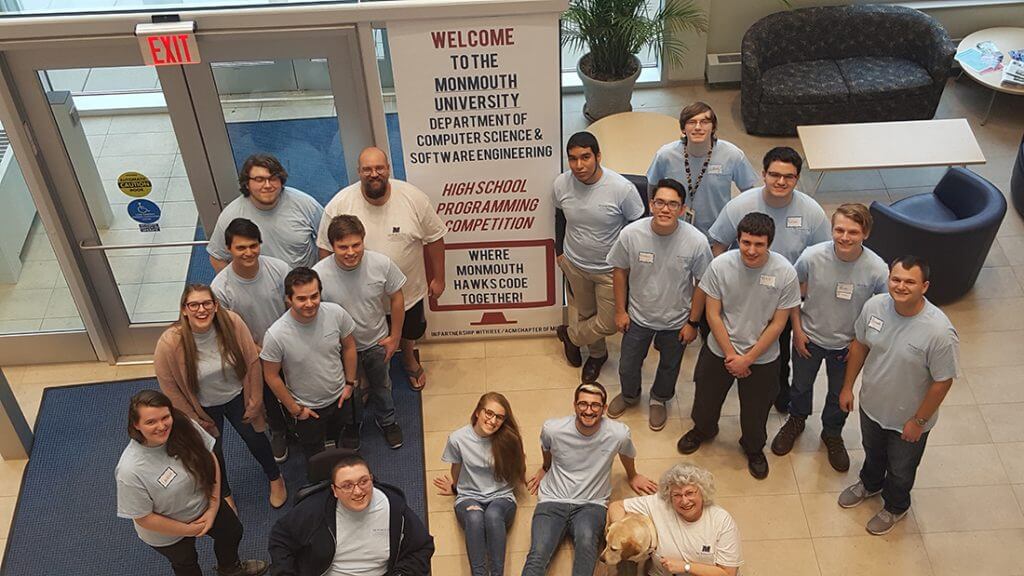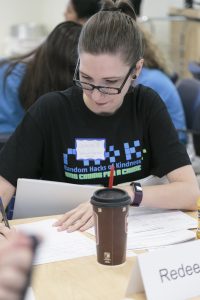
Monmouth University’s Department of Computer Science & Software Engineering is a community of learners and teacher-scholars in computer science, software engineering, information systems, data science, and information technology, dedicated to fostering an environment of active learning, critical thinking, quantitative reasoning and scientific inquiry.
We offer our diverse population of undergraduate and graduate students exposure to a rich, cutting edge and immersive education in several ways: through our ongoing evaluation of programs and offerings, through direct engagement with our dedicated faculty in classroom, laboratory, and research, and through experiential opportunities with local and national industry professionals. Our students acquire lifelong learning, critical thinking and collaborative problem-solving skills which are essential for successful careers and informed, responsible citizenship in a world increasingly dependent on science, technology, and engineering.
Accreditation of our Bachelor of Science degrees in Computer Science and Software Engineering programs by the Computing Accreditation Commission and Engineering Accreditation Commission respectively, of ABET, http://www.abet.org, the nationally recognized accrediting agency for engineering, computing, applied science and engineering technology programs, gives testament to the department’s commitment to maintaining and improving the high quality of our programs by engaging our students in rigorous and intellectually challenging learning experiences that prepare them for life after Monmouth.
 Upon graduation, our students demonstrate the successful achievement of our mission in a variety of ways, which include:
Upon graduation, our students demonstrate the successful achievement of our mission in a variety of ways, which include:
1. Pursuit and completion of graduate studies,
2. Engagement in computing, engineering or scientific research,
3. Entry and success in a variety of relevant professional careers,
4. Utilization of acquired engineering, communications, interpersonal, and business skills to support and advance career development,
5. Service as effective team members and leaders in the development of software systems covering a wide range of business, educational, government and scientific applications,
6. Employment of effective communication with technical and non-technical populations,
7. Design, implementation and evaluation of computer-based systems, processes, components, and/or programs of varying complexity,
8. Application of mathematical foundations, algorithmic principles, and computer science theory in the modeling and design of computer-based systems,
9. Adaptation of new technologies and methodologies and acquisition of additional knowledge and skills to maintain currency in a technologically evolving world,
10. Awareness of and adherence to the social and ethical responsibilities of the scientific and computing profession.
